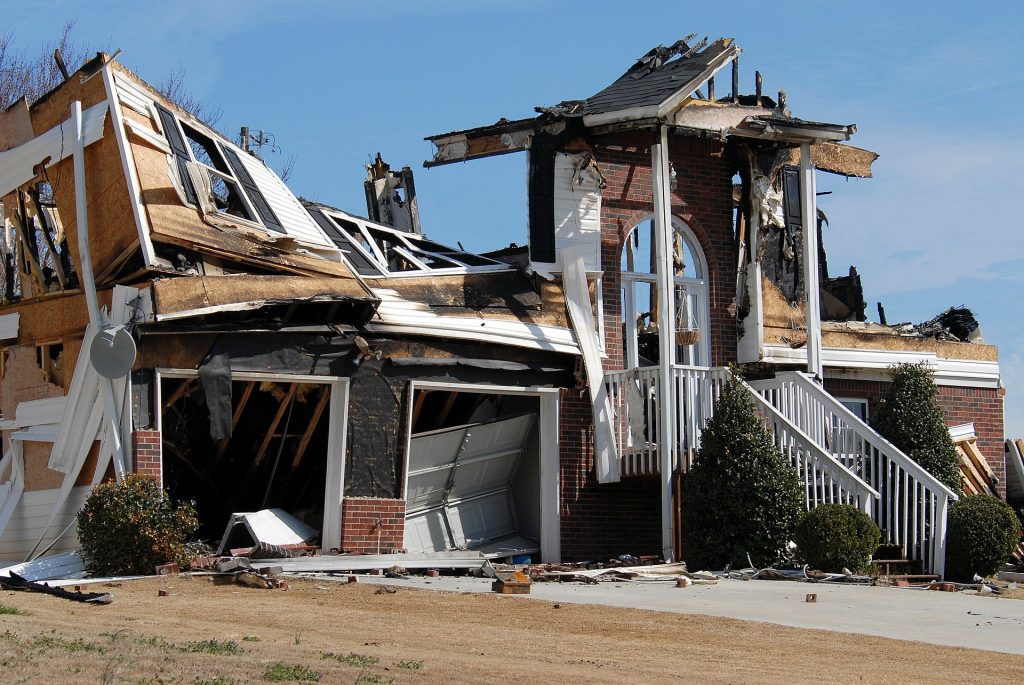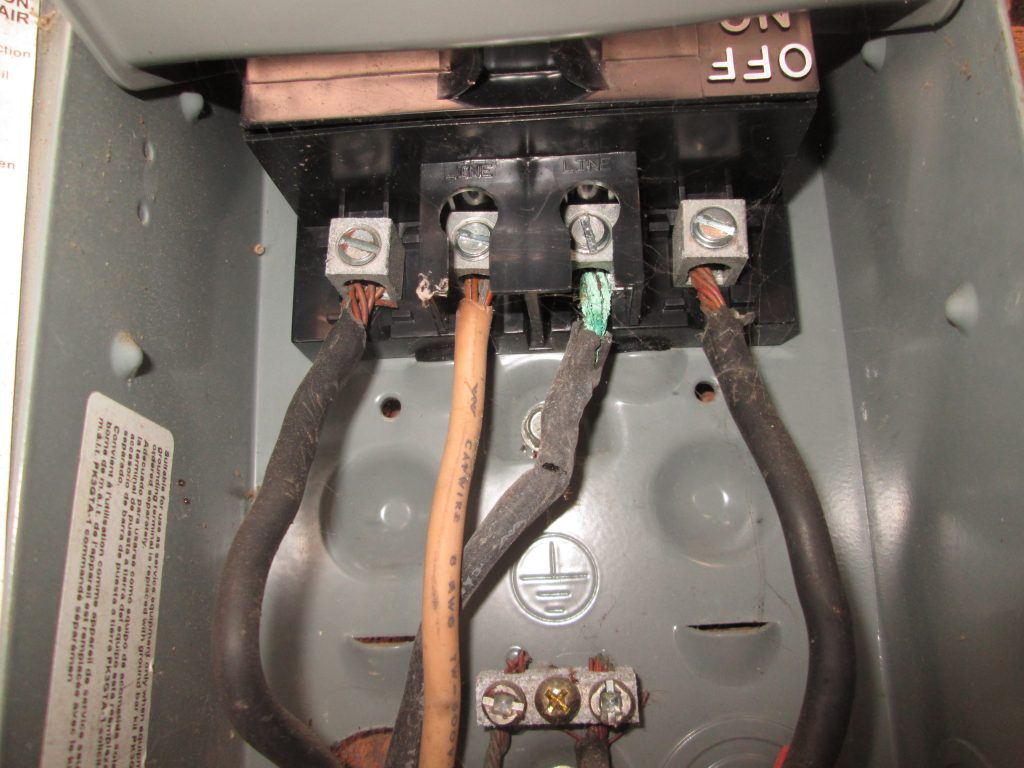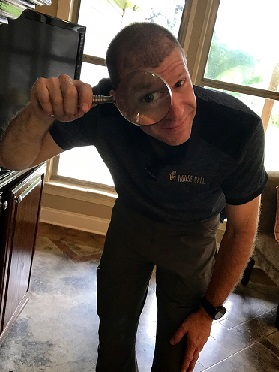It was bound to happen, eventually. Not that we meant to do it, mind you; it was an accident. I’m really sorry about that. Do this job long enough, and those words are going to pass over your lips. No matter how experienced we are, no matter how good we claim to be, no matter how careful, thorough, or meticulous we try to be, it’s going to come to pass. Yes, it’s a given that eventually we’re going to break something while doing an inspection.

It’s inevitable. It’s going to happen. There’s no way around it. It’s simply a matter of time. It’s just statistics; the law of averages; sheer dumb luck. One day, the stars will align against us and we’re going to be in the wrong place at the wrong time.
It was working fine before you got here.
If we stop and think about it, as professional home inspectors, we’re putting ourselves in a no-win situation. Every day, every time we go out to do an inspection, we stand a chance (actually a pretty good chance) that we’re going to break something in the house.
We’re paid to do a thorough inspection of the systems and components of that house, which means that, more than likely, we’re going to be touching hundreds of different things (if not more) in that home.
Knobs, latches, handles, and locks. Faucets, diverters, stoppers, and plungers. Switches, plugs, receptacles, and controls. Valves, cords, fasteners, and dampers. The list goes on and on.
We put our hands on almost every single item (that we can reach) on that property. We push, pull, turn, flip and open things that likely haven’t been touched by the homeowner in years, if ever. When we stop to think about it, it’s actually pretty amazing that we don’t break more stuff during our inspections!
Think about it this way: everything in a house is man-made. Nothing in a house is perfect, nothing last forever, and everything will eventually break. Sometimes it’s going to break six years after we leave the house. Sometimes it breaks six months after the inspection. Sometimes it’s six weeks; sometimes it’s six days; sometimes six minutes and sometimes it’s going to break the exact instant that we reach out to test it.

Eventually everything breaks. Sometimes we have the unfortunate luck of being the one who “breaks it.” We’re simply in the wrong place at the wrong time. The seller (and/or their agent) doesn’t stop to think about the fact that the garage door opener was 17 years old, had already been repaired 6 times, and was being held together with paperclips and duct tape; they just know that we broke it.
It was working fine before you got here.
It’s inevitable that a home inspector, who’s being conscientious and actually doing their job, is going to break something during the process of performing an inspection. It’s a fact. It’s a given. We’ve just got to face it.
C.O.D.B. it’s often called: cost of doing business. The sooner we realize that it’s part of the job, the easier it is for us to handle it when it does happen. No need to stress. No need to freak out. No need to beat ourselves up, lose sleep, or raise our blood pressure.
It is what it is. (Not one of my favorite sentences in the English language, but it fits this instance perfectly.)
Now that we’ve put that behind us and realize that accidents are going to happen (and often happen to us while we’re working), we’ve got to move on and figure out what happens next. We’ve got to stop and think about what’s really important in this situation. We need to consider what’s undoubtedly the most important question in this whole affair: Am I going to have to pay for this?
The answer to this question, like a lot of questions that we face as professional home inspectors, isn’t cut and dry. The answer to this question can leave us with even more uncertainty, stress, and discomfort. What is this seemingly disturbing answer to the simple question “Am I going to have to pay for this?”
It depends.
No certainty. No cut and dry choice. No easy decision. It depends.
Why should something so seemingly easy to figure out cause us so much grief? Shouldn’t we just follow the “Pottery Barn Rule”: you break it, you bought it?
While there’s certainly nothing wrong with just stepping up and immediately taking care of the damage, there may be extenuating circumstances to consider. Just as no two home inspections are the same, no two situations are the same. There are always other things to be considered and other people to be consulted when something gets broken during an inspection.
There are any number of different scenarios that could play out in this situation. Let’s look at one of the most common ones that we’ll be facing when we’re on the hot seat.
1. The cut and dry
Sometimes the situation is as simple as can be. We’re inspecting a house that’s in good shape with everything working. We touch something to test it and we break it. There’s no question that it was working right before we touched it, and we know for certain that we’re the one that broke it.
I did an inspection once where this happened to me. I was inspecting a house where I knew that the water was working because the seller had just left that morning, and the shower walls were still wet from her bathing her kids before school. While inspecting the exterior, I reached for a hose bib at the rear of the house, turned it and nothing happened. Confused, I looked around to the well equipment that was about ten feet behind me. While I’m no well expert, everything looked to be fine, as far as I could see. I walked inside the house to check the faucets there, but still had no water.
I ask the buyer’s agent to call the seller’s agent, to ask them to have the seller call me. Before too long I was on the phone with the seller. She confirmed that the water worked fine that morning, and I explained to her what happened. I asked for her permission to remove the cover from the well controls and once I did, I could clearly see that the wires from the house to the control are burned. Apparently, the wires picked the instant that I wanted to turn on the water to fry.
She was very understanding about the whole situation, and since the well equipment was only 10 feet from the house (and the exterior mounted junction box), the whole repair took the electrician less than 10 minutes to do and was relatively inexpensive. (It helps to have a friend who’s a local electrician…)

This situation was cut and dry. It worked before I got there. It broke when I touched it. I paid to have it fixed. Not much thought went into that situation; it was an easy one to figure out.
(Incidentally, the seller called me the next day to do the inspection on the house that she was upgrading to, and her real estate agent now uses me exclusively for her home buying clients. I’d say that taking ownership of that situation and performing the repair was a worthwhile investment.)
Check out next week’s post (part 2), with a look at two more situations we may encounter when we break something on an inspection: the set up and the P.O.S.
I welcome all feedback (both positive and negative) on this post.
Please take a moment to leave a comment below. Thank you!
Want to be an Influencer in Your Field? Share This Post!
Thanks, Joe

